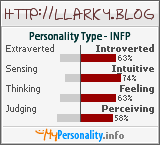sábado, 15 de agosto de 2009
A people's tragedy - Nicholas and zemstovs
Mirsky presented the Tsar with a carefully worded digest of the zemstvo assembly's resolutions, in the hope of winning him over to a programme of moderate reforms. The most controversial recommendation was the one for elected zemstvo representatives to sit on the State Council. But it also declared, in terms that must have offended the Supreme Autocrat, that the 'old patrimonial order' with its 'notions of personal rule' had been dead since the 1860s. Russia was no longer 'the personal property and fiefdom of its ruler', but an 'an impersonal state with its own body politic', its own 'public interest' and 'public opinion', which made it 'separate from the person of the ruler'. It was no doubt this challenge to his cherished ideals of patrimonialism that convinced the Tsar, under pressure from the Empress and his court advisers, to reject the most progressive parts of Mirsky's draft decree. 'I will never agree to the representative form of government', Nicholas proclaimed, 'because I consider it harmful to the people whom God thas entrusted to me.' The decree, which was finally passed on 12 December, promised to strengthen the rule of law, to ease restrictions on the press and to expand the rights of the zemstvos. But it said nothing on the all-important subject of a parliamentary body, on which concessions were essential if a revolution was to be averted. Hearing of its contents, Mirsky at once fell into despair. 'Everything has failed,' he said despondently to one of his colleagues. 'Let us build jails.
Suscribirse a:
Enviar comentarios (Atom)

No hay comentarios:
Publicar un comentario